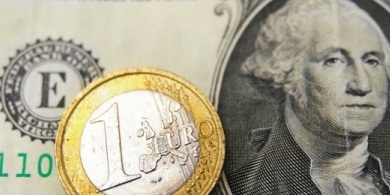
Why worry about inflation, Mr governor? When Mario Draghi unveiled the procedures of the European Central Bank to buy sovereign bonds, he disclosed too how it would be done without incurring in an outright depreciation of the euro.
After all, the latest ECB plans are called Outright Monetary Transactions (OMT) for a reason: they put new, raw money into the euro zone economy system.
Yet, the mechanism by which the central bank will balance the effect of these injections has been described as “leaky”, in the words of Tom Elliott, global strategist at JP Morgan. The ECB explained that short-dated bonds would be sold to financial institutions; but they can also be used as collateral to ask the ECB for more cash.
The mood in the City of London prior to these announcements was unsurprisingly pessimistic. For instance, 90 percent of financial advisers agreed that more bailouts were in the pipeline for Brussels, and bigger economies like Spain were going to steal the spotlight from Greece.
According to Skandia’s adviser confidence barometer in August, the countries under most pressure were Spain, Italy and Portugal. 66 percent of advisers feared their rescue would seriously damage the future of the common currency and the British economy’s options of recovery.
Rupert Watson, head of asset allocation at Skandia, thinks that something had to be done and the ECB has entered the right path. “At last, we are seing some good news,” Watson says. “While economic data remains very weak, this easing of tensions within the euro zone could lead to a better performance next year,” he adds. In an investor note, Watson referred to the OMT as “a significant turning point in the crisis.”
The City voices seem now eager to heil Draghi, though. And want him to behave more radically.
“In a normal world,” a JP Morgan report said, “if a central bank creates large quantities of new cash but demand in the economy is stagnant, inflation will follow and the currency will fall.”
We aren’t in a normal world, nevertheless. “Despite ultra-low interest rates and the ECB making very cheap money available to banks, the demand and availability of credit is weak, ” JP Morgan indicates. So much so that recent rises of broad money supply has not destabilised the euro; indeed, the trouble of the European currency come from other sources.
“This suggests that unsterilised intervention need not be inflationary,” the US bank’s analysts conclude. Instead, the ECB would send a more powerful message by fighting in the open for the euro, in their opinion.
But, with Spanish and Italian exports already sliding up, who’d exactly prefer a stronger currency?





Be the first to comment on "The City wants a braver Mario Draghi"